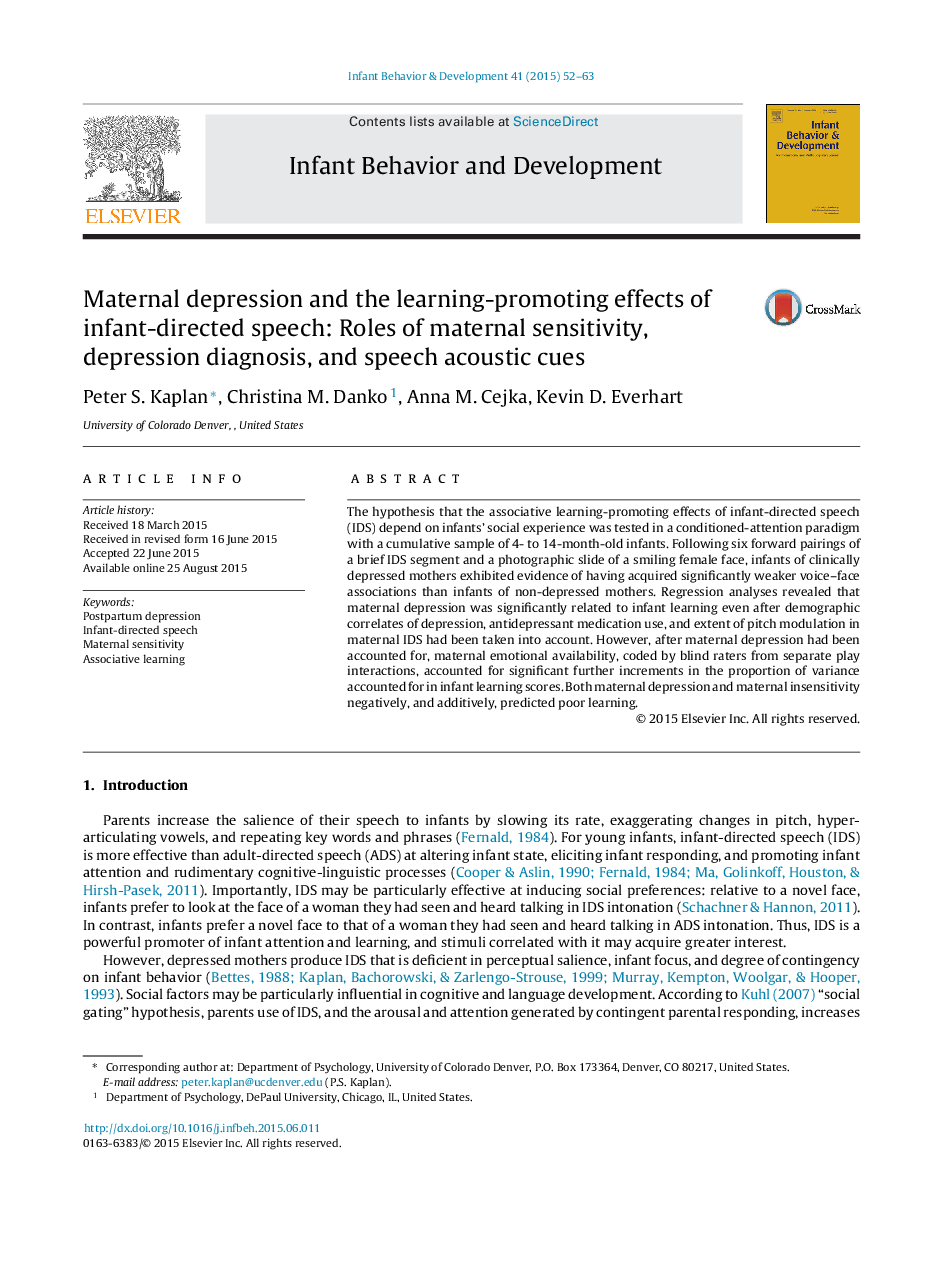| Article ID | Journal | Published Year | Pages | File Type |
|---|---|---|---|---|
| 917162 | Infant Behavior and Development | 2015 | 12 Pages |
•Predictors of infant voice–face associative learning were studied in a conditioned-attention paradigm in a cumulative sample of 4- to 14-month-old infants of non-depressed and depressed mothers.•Maternal depression diagnosis and maternal sensitivity each had main effects on IDS-facilitated infant learning, but the two did not significantly interact.•Extent of pitch modulation in maternal IDS was unrelated to infant learning.•Results reinforce the conclusion that infants’ social experiences with their mothers affect the learning-promoting properties of maternal IDS.
The hypothesis that the associative learning-promoting effects of infant-directed speech (IDS) depend on infants’ social experience was tested in a conditioned-attention paradigm with a cumulative sample of 4- to 14-month-old infants. Following six forward pairings of a brief IDS segment and a photographic slide of a smiling female face, infants of clinically depressed mothers exhibited evidence of having acquired significantly weaker voice–face associations than infants of non-depressed mothers. Regression analyses revealed that maternal depression was significantly related to infant learning even after demographic correlates of depression, antidepressant medication use, and extent of pitch modulation in maternal IDS had been taken into account. However, after maternal depression had been accounted for, maternal emotional availability, coded by blind raters from separate play interactions, accounted for significant further increments in the proportion of variance accounted for in infant learning scores. Both maternal depression and maternal insensitivity negatively, and additively, predicted poor learning.
